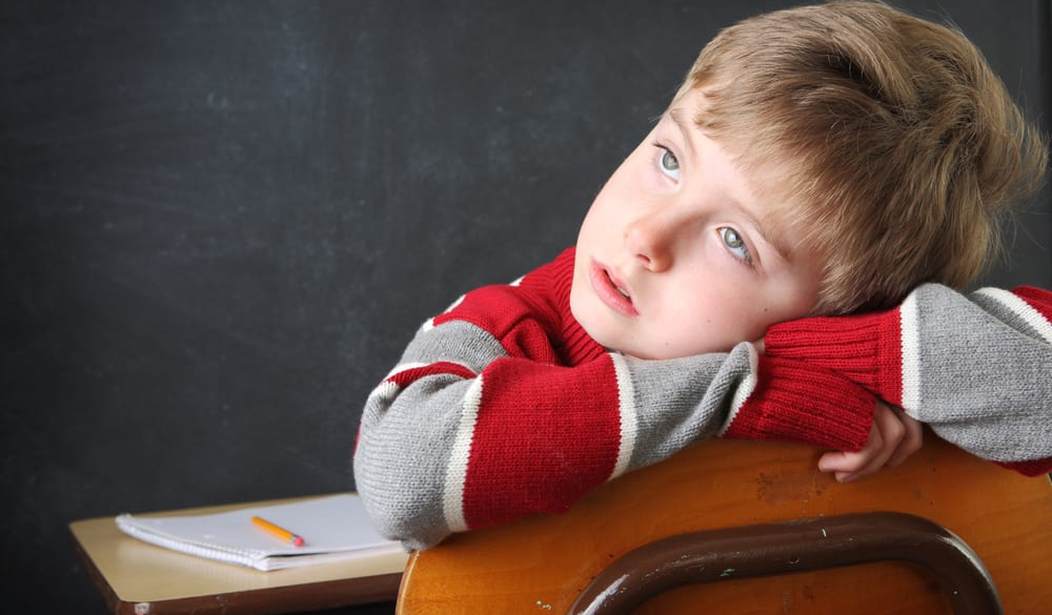Wendy Wisner wrote a charming piece on the challenges and joys of parenting her son, who is an academically gifted elementary school student. As a former gifted student who is the better half of a twice-gifted marriage, I always knew any children I had would be gifted in their own unique ways. What I didn’t know was how challenging a gifted child would be to parent.
Three weeks into my son’s life he began fighting sleep. As my mother-in-law said, he was just too interested in the world around him to close his eyes. At almost two years old he can go a full day without napping in favor of intellectual and social stimulation. Like Wisner’s son, my boy is intensely emotional and relentlessly stubborn. He’s been comfortable making choices, grabbing fingers, and giving directions to everyone in the room since he could walk. Ever get instructions from a 20-month-old on how to play catch? I have. It’s hysterical.
Both Wisner’s son and my own are perfectionists. I had to distract my son into walking by himself, he was so intent on clutching to me lest he make a mistake. While the rest of the 2-year-olds in his music class run around with instruments, my son studies the teacher’s moves carefully and will not attempt to imitate her until he’s sure he can do it right the first time. He loves playgrounds and walking up and down the steps by himself, but won’t hesitate to grab a hand to avoid tripping and falling. His is what Dr. Elaine Aron dubbed the “pause and think” response common to highly sensitive, highly perceptive children.
These are only a few examples of how I could relate to reading Wisner’s honest account of how emotionally, mentally and even physically challenging it is to have a gifted child. However, I would caution Wisner and other parents of gifteds on one point. Regardless of how competitive and stressful you feel gifted educational programs appear to be, you are not doing your child any favors by enrolling them in a “normal” or average school. What you think is “normal” doesn’t apply to your gifted child, because his “normal” is entirely different from your own.
Wisner seems pleased enough with her decision to keep her son in the “neighborhood school,” noting that her son’s teachers are happy giving him extra work, yet still leaving him enough time to be a kid. Hopefully his academic experience remains that way. The reality is that for most gifted students a neighborhood school, particularly a public one, will never be fulfilling enough. Nor will it ever provide them the opportunities to live up to their full potential.
Wisner opens her piece with a story about not wanting to comment on her son’s giftedness to other mothers of children in his class. Indeed, the whole point of her piece is to comment on how putting her child in a “normal” school has left her quite friendless out of fear of her son’s brilliance offending parents of “normal” kids. Gifted kids know this offense all too well, and if her son hasn’t already experienced it on the playground he soon will. The best thing a parent of a gifted child can do is be honest and open about their child’s giftedness. The same goes for parents of children who have learning differences of any kind. You, the parent, are the source of your children’s self-worth. When their inner critic speaks to them it is your voice they hear. So, do you want them to fit into “normal” for your sake, or to be proud of their abilities for the sake of their own self-worth?
Every parenting experience carries with it a unique set of challenges. I have no idea where my son will wind up going to school. The most I can say is that the research has already begun. And for as exhausted as I am at the end of each day, I still thank God that my son is who he is. My son is never going to be the person everyone else thinks he ought to be and I am never going to parent the way everyone else thinks I should. Perhaps that is the gift of giftedness: The inability to be anything but true to yourself. If that’s considered abnormal, that’s culture’s problem, not my child’s.









Join the conversation as a VIP Member